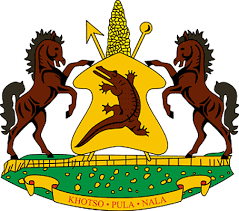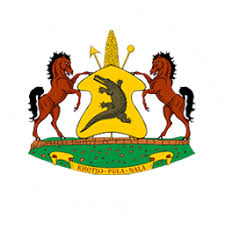Seabata Mahao
The Central Bank of Lesotho (CBL), in partnership with the National University of Lesotho (NUL), has launched a financial literacy program to enhance financial knowledge and skills across the nation.
The program, spearheaded by the CBL, is a crucial component of the bank’s strategic plan aimed at promoting financial stability and economic development through effective monetary policy and financial sector regulation.
Ephraim Moremoholo, the CBL’s Public Relations Manager, emphasised the importance of human resource HR officers and government leaders as key stakeholders in promoting financial literacy within their organisations and communities.
He highlighted the significant impact of financial well-being on individual performance and engagement at work.
“Financial well-being directly influences an individual’s performance and engagement at work. We need HR officers and government leaders to promote financial literacy within their organizations and communities not only to improve individual financial health but also to support economic growth,” Moremoholo explained.
Lehlomela Mohapi, the first Deputy Governor of CBL, shared critical findings on Lesotho’s borrowing habits. The research revealed that many Basotho prioritize loan accessibility over cost, leading to overreliance on borrowing and an increase in non-performing loans.
“This tendency, coupled with a lack of debt management skills, has led to an overreliance on borrowing and an increase in non-performing loans. Our research indicated that salaried individuals, who are often seen as the safest borrowers due to their steady income, are struggling with excessive debt,” Mohapi mentioned.
Mohapi emphasised the need to incorporate financial literacy into the national curriculum to instill essential financial principles in young minds.
Peter Khaola, representing NUL, discussed the university’s commitment to its newly approved strategic plan, which aims to enhance its relevance and visibility. The plan addresses contemporary needs and ensures the university offers practical, demand-driven programs tailored to the needs of the Basotho nation.
“Every Mosotho must play a role in acquiring financial knowledge. Personal finance values and investments, estate and retirement planning, budgeting and debt management, fraud and risk management, and others are among the modules to be offered,” Khaola stated.
The program aims to equip students and the broader community with skills, knowledge, and tools necessary to make informed financial decisions, manage finances effectively, and contribute to economic growth. It aligns with Lesotho’s Sustainable Development Goals (SDGs) and the National Strategic Development Plan (NSDP II).
As part of the initiative, NUL has launched a Certificate of Proficiency in Financial Literacy, developed and managed by the Faculty of Law. The program addresses challenges such as excessive debt, insufficient savings and investment, and inadequate retirement planning.
“The financial sector plays a role in providing formal and informal education on financial literacy to the Basotho people. The current challenges faced by the Basotho include excessive debt, insufficient savings and investment, and inadequate retirement planning. To tackle these pressing issues, the NUL has launched a Certificate of Proficiency in Financial Literacy developed and managed by the Faculty of Law,” Khaola added.
This partnership between the CBL and NUL is expected to have a profound impact on Lesotho’s financial landscape, fostering a financially literate society capable of making sound financial decisions and driving economic growth.
Summary
- The Central Bank of Lesotho (CBL), in partnership with the National University of Lesotho (NUL), has launched a financial literacy program to enhance financial knowledge and skills across the nation.
- The program, spearheaded by the CBL, is a crucial component of the bank’s strategic plan aimed at promoting financial stability and economic development through effective monetary policy and financial sector regulation.
- This partnership between the CBL and NUL is expected to have a profound impact on Lesotho’s financial landscape, fostering a financially literate society capable of making sound financial decisions and driving economic growth.

Your Trusted Source for News and Insights in Lesotho!
At Newsday Media, we are passionate about delivering accurate, timely, and engaging news and multimedia content to our diverse audience. Founded with the vision of revolutionizing the media landscape in Lesotho, we have grown into a leading hybrid media company that blends traditional journalism with innovative digital platforms.








